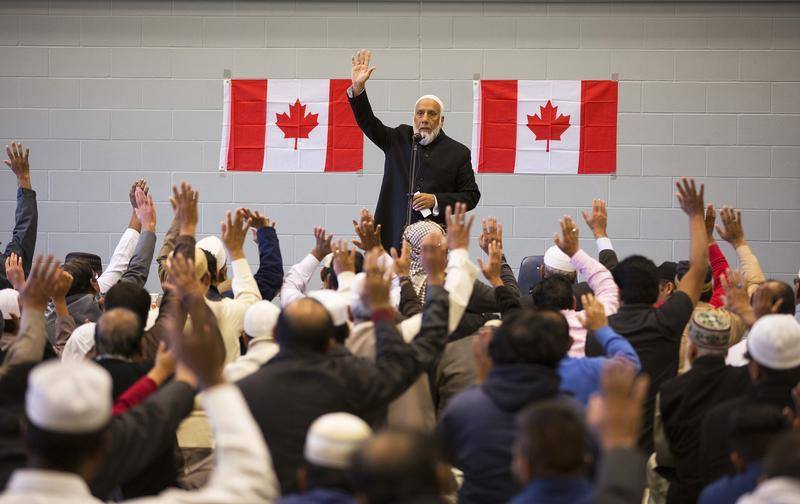Calgary Imam likens Harper to Idi Amin

An Imam in Calgary likened the outgoing Prime Minister Stephen Harper to Uganda’s former brutal dictator Idi Amin yesterday, drawing fire from Canadians across the political spectrum.
“Stephen Harper’s legacy as Prime Minister of Canada. ” Prof. Imam Syed B. Soharwardy said in a message on Twitter and Facebook. “He ruled Canada as Idi Amin ruled Uganda.”
The Pakistan-born head of the Islamic Supreme Council of Canada, who once demanded that the Muslim immigrants go back to their Muslim-majority homelands and worked with RCMP to combat ISIS terrorism, has been a fierce critic of Harper’s use of divisive politics.
“It is not only our civic duty to vote but it is also our religious duty to stand up against racism, discrimination and Islamophobia,” Imam Syed Soharwardy told his followers before the election. “The policies of Mr. Harper regarding Syrian refugees, Niqab, security and intelligence gathering is clearly rising Islamophobia and fear in Canada.”
“Bye Bye Mr. Harper,” the cleric wrote in a Facebook message after the election results were announced. “You underestimated Canadians. Canadians are smart people. Divisiveness, fear, racism and Islamophobia lost tonight.”
But his most recent pronouncement has made the Imam, who walked 6,500km across Canada leading the Multifaith Walk Against Violence, an object of derision online.
“Harper was a control freak of a PM but your comparison is so far out it missed left field and hit the train station,” realABswim_tri tweeted.
“How many people did Harper kick out due to the colour of their skin?” Twitter user shezadrajan asked. “Was Harper also a cannibal?”
“Interesting,” LeighPatrick tweeted. “On a completely different topic, have you ever considered seeing a psychiatrist?”
“You should retract that statement or forever stand shamed in Canadian society,” Keith Walton said.
Idi Amin was accused of human rights abuses, political repression, ethnic cleansing, extrajudicial killings, nepotism, corruption, and gross economic mismanagement leading to the deaths of between 100,000 to 500,000 Ugandans during his reign of terror between 1971 and 1979.



